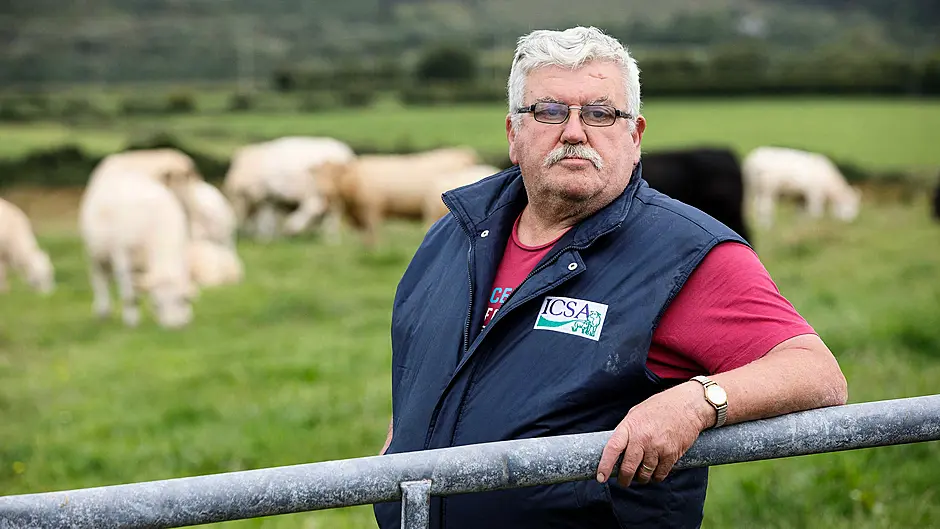THE government’s 2023 Climate Action Plan is ‘long on aspiration and short on specific funding strategies.’
That’s according to ICSA president Dermot Kelleher who said that while farmers will be relieved to see that there is no mention of a 10% cull either on a voluntary or compulsory basis which supports the position of ICSA, the Government is now going to have to put money in place ‘to deliver on its aspirations.’
The Inchigeela farmer, said the plan is surprisingly short on proposals to fund any climate actions by active farmers.
‘It calls into question whether the Government is serious about a coherent strategy across all sectors when the plan actually envisages €119 billion investment but makes no mention of a funding package for farming.’
The reality, Mr Kelleher said, is that all sectors, across the board, will struggle to make the sectoral emissions ceiling targets.
‘Substantial investment is required as evidenced by estimates of €42 billion for transport, €36 billion for electricity and €32 billion for buildings. Agriculture barely registers when it comes to expected investment.
‘The key point is that farmers are willing to do all they can to improve the sustainability metrics of producing highly nutritious meat and dairy which is critical to food security globally.
‘The reality is that as people become more affluent, they choose to increase their consumption of meat and dairy in recognition of the fact that these products deliver protein in its most beneficial format and vital vitamins and minerals such as vitamin B12, calcium, zinc, and iron,’ he said.
However, Minister for Agriculture Charlie McConalogue, insists the plan provides a viable pathway to achieve a 25% reduction in greenhouse gas emissions for agriculture by 2030.
He said the plan’s focus is on reducing nitrogen and methane emissions, while increasing carbon capture and storage and contributing in a positive way to the decarbonisation of the energy system.
‘Diversification opportunities like anaerobic digestion, forestry and tillage will also provide opportunities for farmers who wish to consider alternative income sources.
‘Ireland’s food producers and farmers have a tremendous reputation internationally in terms of the sustainability of the food and drink they produce. It is a reputation that they can be justifiably proud of.
‘With a rapidly evolving marketplace seeking confirmation of our sustainability credentials, farmers have engaged proactively in recent years in improving the carbon footprint of their produce,’ he said.
‘Farmers have been a journey towards becoming more sustainable for many years. We are now stepping up that ambition.
‘We want to ensure that there is a bright and sustainable future for our farm families for this and subsequent generations.’
Minister of State Pippa Hackett said the plan also sets a target of 450,000 ha for organic farming by 2030.
‘We have seen unprecedented levels of interest in organics in recent months, with record numbers of farmers applying earlier this month to join the Organic Farming Scheme from 2023.
‘As well as contributing to our climate targets, organics delivers significant benefits for biodiversity and water quality, and it aligns with our policy under the Climate Action Plan of significantly reducing our use of chemical fertilisers,’ she said. Technological innovation, adoption and research are crucial in achieving the emissions reductions in the agriculture and land-use sectors, she said. However, Mr Kelleher concluded that ‘it is now time to move away from the one-sided attack on livestock farming.
‘The Government must step up to the plate and deliver the funding necessary to assist farmers deliver on climate, on food security, on energy security and on biodiversity.
‘None of this can happen unless there is a pathway to all farming systems delivering profitability and it must be done with a keen recognition that our €15 billion agrifood exports are critical to the economic well-being of all 26 counties and not just Dublin.’







